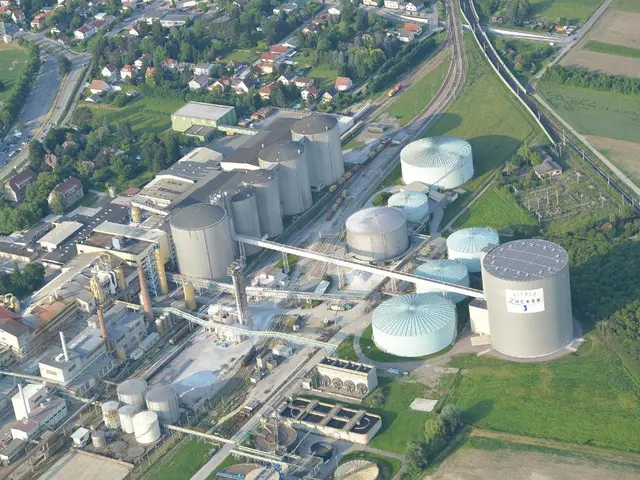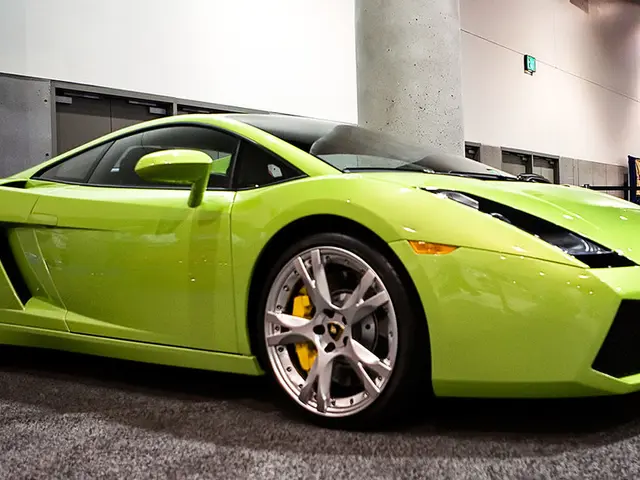Volkswagen's Electric Car Struggles: Catching Up or Losing Ground?
Herbert Diess, former VW CEO, promised shareholders a transformation back in 2018. He claimed that the "supertanker" was speeding up, but fast-forward to 2023, and the German automaker still finds itself lagging behind Tesla and local Chinese brands in the race for electric vehicles.
Volkswagen, despite having brands like Audi and Porsche under its wing, is struggling to keep up with Tesla's shocking sales figures. Last year, Elon Musk's US-based rival sold a staggering 1.31 million electric vehicles (EVs), while VW only managed half that. In China, the largest automotive market, VW faces even stiffer competition.
Al Bedwell, director at GlobalData, said, "Volkswagen is falling behind in the race for battery-electric vehicles. The main problem is China, and we expect that this will continue to be the case." Bedwell further predicted a 7% drop in VW sales in China this year, leaving the German automaker with a mere 3.3% share of the rapidly growing electric vehicle market in China.
GlobalData reported that China's electric vehicle sales grew by nearly a quarter in 2023, with BYD leading the way as the country's top-selling brand, followed by Tesla. But will VW mange to catch up before it's too late?
Volkswagen's Electric Vehicle Ambitions Soared and Crashed
Investor enthusiasm for VW's electric vehicle plans soared in 2021, with the stock skyrocketing by 60% due to big promises of building six gigafactories across Europe for battery manufacturing. VW also announced plans to sell over 2 million electric vehicles by 2025 and exceeded expectations in the first half of 2023.
However, most of the gains were erased the following year as it became increasingly apparent that the company was failing to meet its ambitious targets. And as of now, VW's share price has fallen by 14% since the start of 2023.
Daniel Röska, EU automotive analyst at Bernstein Research, said, "If VW manages to implement even a fraction of the plans they've announced, then I think everyone will be very happy. Praise them all if they manage to do so."
Volkswagen's ambitious electric vehicle plans were ambitious, but they were never realistic. As Röska added, "What they planned to achieve, in terms of what they wanted to achieve, was actually quite astonishing, but it was never realistic."
Cost Constraints and 'Dieselgate' Looming Over Volkswagen's Electric Future
Delays and high costs have impacted VW's struggling electric vehicle efforts. Last month, Thomas Schaefer, CEO of VW Passenger Cars, admitted that the flagship brand was no longer competitive due to high costs and low productivity.
"We must finally be brave and honest enough to get rid of things that are repeated within the company or just ballast that we don't need to achieve good results," Schaefer said.
VW executives are actively discussing ways to slash 10 billion euros in costs, aiming to improve efficiency.
The low profit margins of the VW brand, which many believe will struggle to reach profitability in an era of higher prices, could only further hinder VW's electric vehicle efforts.
Dieselgate still casts a long shadow over Volkswagen's future efforts. Almost a decade after the scandal broke out, Volkswagen is still dealing with the aftermath, having paid out billions in fines and settlements.
"Dieselgate has dealt a severe blow to Volkswagen's self-confidence," Röska said. "This led them to overcorrect in terms of compliance, becoming more cautious and slower as a result."
Slow and Steady: Is Volkswagen Doomed to Be a Laggard?
Volkswagen is faced with the challenge of making its legacy business more efficient, while also pursuing its ambitious electric vehicle strategy. In the meantime, startups and Chinese competitors are quickly flexing their muscles and making their moves in the market.
UBS Europe analyst Patrick Hummel said, "Byd will make a product available in 2025 and another one in 2027. The development cycle and speed to market is quite different." Hummel labeled Volkswagen a "slowly moving giant."
So, can Volkswagen get back on its feet and dominate the electric vehicle market? Only time will tell. But one thing is for sure: VW's competitors aren't waiting for the German automaker to catch up.
Enrichment Data:
Volkswagen is taking numerous strategies to cope with the competitive electric vehicle market:
- Budget Electric Car: Volkswagen launched the ID.1, a budget electric car starting at €20,000, to counter competitors, particularly Tesla, and make EVs more affordable to a broader market.
- Expansion and Aggressive Growth: Volkswagen has a three-Phase plan dubbed "Catch-Up, Attack, and Lead," aiming to address past challenges, expand aggressively, and then secure a leadership position in the global EV industry.
- Partnership with Chinese Manufacturers: Volkswagen is exploring the possibility of sharing its excess production lines in Europe with Chinese EV makers to lower the entrance barrier for competitors.
- Product Diversification: Volkswagen plans to introduce the ID.2, a compact electric hatchback, and the next-generation fully electric Golf, built on the Scalable Systems Platform (SSP) to cater to diversified market segments.
- Heavy Investment in China: Despite soft sales in China, Volkswagen is increasing investment in the country with an "In China, for China" strategy.
- Competitive Pricing: Volkswagen has adjusted its pricing strategy, with the ID.7 Vizzion, a Tesla Model 3 competitor, now available at a reduced price in China, starting at 197,700 yuan (27,200 USD) for the rear-wheel drive version, intended to maintain a competitive edge.
By leveraging these strategies, Volkswagen aims to catch up with its rivals, Tesla and Chinese manufacturers, and regain dominance in the rapidly evolving electric vehicle market.








